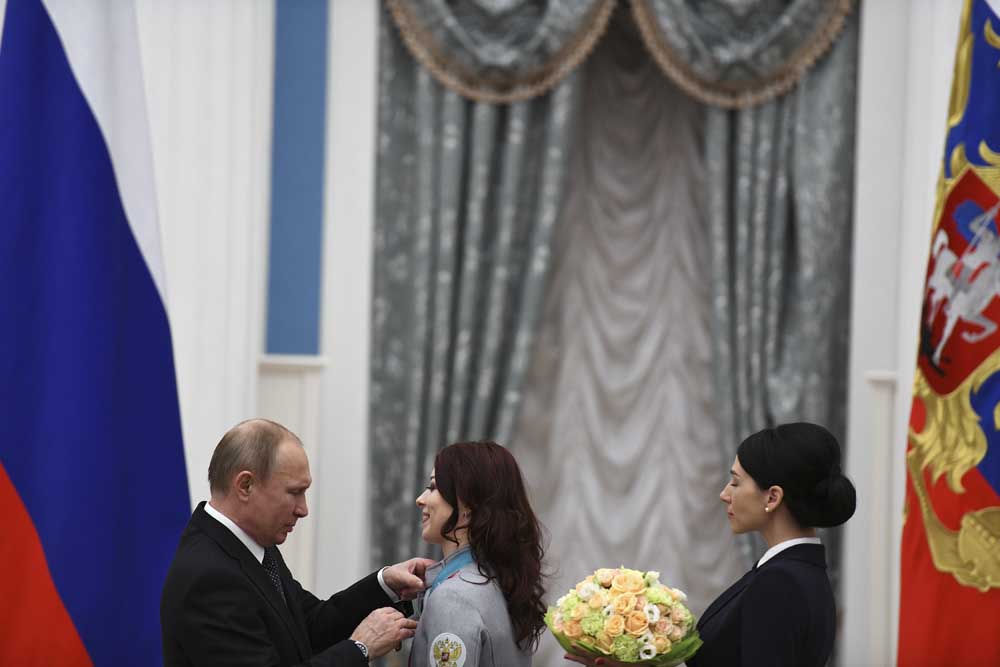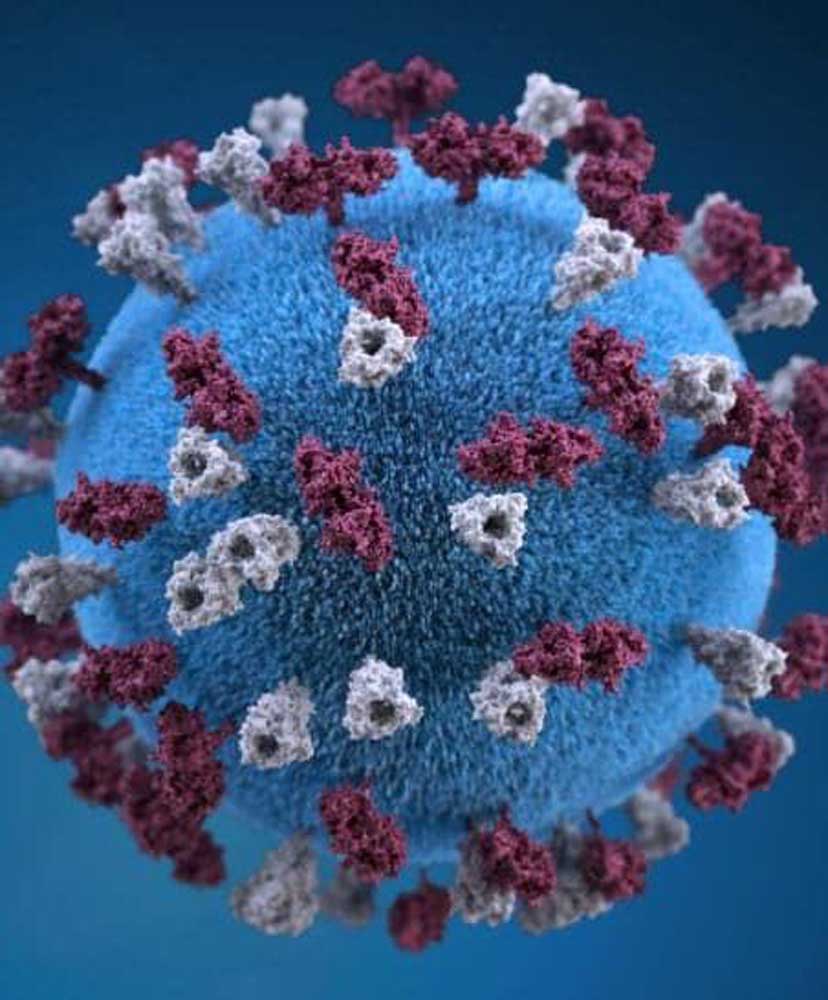Reinstated, Russia aims to ‘turn this page’
Published 12:00 am Thursday, March 1, 2018

- President Vladimir Putin pins a state award on the uniform of Ekaterina Bobrova, a figure skater at the 2018 Pyeongchang Winter Olympics, during a ceremony at the Kremlin in Moscow, on Wednesday. The International Olympic Committee lifted its ban on Russia after the remaining drug tests from the Pyeongchang Olympics tested negative. (James Hill/The New York Times)
MOSCOW — President Vladimir Putin said the decision by the International Olympic Committee on Wednesday to lift its suspension of Russia signaled that it was time for the country to put the doping scandal behind it, a sentiment echoed by some of its newly minted Olympic winners.
“We have to turn this page,” Putin said at a warm, relaxed ceremony in one of the Kremlin’s gilded, domed reception halls, where he awarded state medals to the Russian athletes who won medals at the Pyeongchang Games in South Korea.
Russia has long blamed the scandal on an international effort to isolate the country rather than revelations about its state-backed doping program, which soiled a series of international sporting events.
The return of Russia to full-member status in the IOC was not connected to any acknowledgment of wrongdoing, and Putin stuck to the Kremlin’s standard line.
“I hope that international organizations will eventually understand that sports should be kept as far away as possible from problems that are completely unrelated to sports,” he said. “In general, with all the complexities and problems, the games gave us pleasant surprises and new heroes.”
The 44 or so Olympians being honored — first with medals, then with a toast and finally with a new BMW for each — had the option of saying a few words from the podium.
The few who spoke welcomed the end of the Olympic penalties, but they also expressed a certain defiance that the Russian Olympic team, and by extension the country, had emerged from the Winter Olympics relatively well despite the hurdles involved.
Pavel Datsyuk, a former National Hockey League player for the Detroit Red Wings and the captain of the Russian team that won gold in men’s hockey, called it a “landmark Olympics” for his country.
“We did a decent job defending the honor of our country,” he said in thanking the president, attributing the outcome to both the Russian character and support from across this vast land. “Thanks for your help, thanks for letting us vindicate to the whole world that our Russian character is not broken and won’t ever be broken.”
Russia’s flag and anthem were missing from the Pyeongchang Games, though more than 160 of the nation’s athletes were able to participate as neutrals called “Olympic Athletes from Russia.” Two of them accounted for half of the failed drug tests at the Pyeongchang Games. Russia was not allowed to march under its flag in the closing ceremony.
Russia’s reinstatement followed a decision on Sunday by the IOC’s executive board, led by Thomas Bach, its president, to bring Russia back into the fold if the remaining drug tests of its athletes from the Pyeongchang Games were confirmed as negative.
Scores of Russian athletes, coaches and officials were barred after an investigation into the yearslong conspiracy that peaked at the 2014 Olympics in Sochi, Russia, when the state security apparatus colluded with sports officials to swap drug-tainted urine samples with clean ones in a clandestine, dead-of-night operation.
The scandal and its aftermath have led to much upheaval in the global sporting movement, with many athletes and some of the IOC’s own members critical of the way it had been dealt with. Richard Pound, the organization’s longest-serving member, boycotted the closing of the Pyeongchang Games in protest. The doping scheme has now tarnished no fewer than three Olympic Games.
At Sunday’s IOC session, where the plan to rehabilitate Russia was first announced, Nicole Hoevertsz, an official from Aruba tasked with monitoring Russian compliance, said the time had come to move on.
“We should draw a line, we have to draw a line and look to the future,” she said. After the two failed drug tests by Russian athletes — by curler Alexander Krushelnytsky and bobsledder Nadezhda Sergeeva — the IOC did not lift the suspension for the closing ceremony, which it had called a possibility.
At the Kremlin, various Russian medalists said that being able to participate in the Olympics was more important than being able to display their national symbols, and several thanked Putin for allowing them to compete despite the restrictions.
Russia has never accepted the description of a state-controlled doping operation in the country set out in great detail by its former doping laboratory head, Grigory Rodchenkov, and confirmed by three separate investigations. The World Anti-Doping Agency said it would continue to regard Russia’s domestic drug testing organization as noncompliant until it does accept the findings.
Many of Russia’s top athletes were barred from the 2018 Games because of links to the doping scandal. That led to a weak performance, and a vast downgrade from the doping-fueled success in Sochi, where Russia topped the medals table. Alina Zagitova, a 15-year-old figure skater, beat her compatriot Evgenia Medvedeva in a battle for gold, before the Russians secured the hockey title in an overtime victory over Germany on the final day.
As well as the Olympic ban, Russia was forced to pay a $15 million fine. The effects of the scandal continue to roil the sports world. Several biathletes, including members of the U.S. team, have announced that they will not participate in next month’s season-ending competition in Russia, while soccer’s governing body, FIFA, is facing scrutiny just four months before the World Cup in Russia over claims of doping by players from there.








